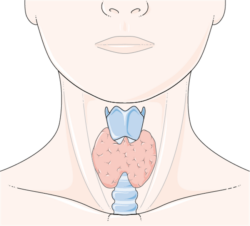When a pregnant woman is asked if she is hoping for a boy or girl, her inevitable response is similar to, “I only care that my baby is healthy.” Many expectant mothers do their best to have a healthy baby by leading a wholesome lifestyle and following doctors’ orders. Nonetheless, millions of babies are born with medical conditions, many of which affect children throughout their lives.
Medical research suggests a number of health issues may be prevented if pregnant mothers enjoy sufficient vitamin D3 levels, ideally prior to conception.
Vitamin D3 is vital to pregnant women’s health. An expectant mom with adequate vitamin D3 levels may enjoy a decreased risk of pregnancy complications including: anemia; bacterial vaginosis; Caesarian section; gestational diabetes; and pre-eclampsia. University of Pittsburgh researchers ascertained that women with low vitamin D3 blood serum levels (less than 15ng/mL) have five times the risk of developing pre-eclampsia, a common obstetrical condition that can lead to a fatal stroke.
Vitamin D3 is vital to fetal bone and cell development. A pregnant woman’s vitamin D3 levels may play a significant role in the health of a developing fetus, according to recent medical studies. Low maternal vitamin D3 levels may contribute to premature delivery and low birth weight. Furthermore, babies born to mothers with a vitamin D3 deficiency are more likely to develop, inter alia; asthma; autism; soft bones (craniotabes, rickets); brain tumors; cardiovascular malformation; type 1 diabetes; epilepsy; pneumonia; and seizures.
Harvard researchers led a study (published in 2010) that examined the vitamin D3 status of over 900 New Zealand newborns. They found that babies born with adequate vitamin D3 from their mothers had a greater chance of a stronger, inherent immune system. The researchers concluded vitamin D3 was crucial not only to a newborn’s health but to his or her well-being throughout life.
Are Prenatal Vitamins Enough?
Unfortunately, the majority of pregnant women reportedly have vitamin D3 serum levels less than 50 ng/mL, a measurement on the lower side of adequate. (A number of vitamin D experts believe a healthy vitamin D3 range is at least 50-80 ng/mL.) You may be thinking, “My prenatal vitamin includes vitamin D, so I do not need to be concerned about my vitamin D levels.” Most prenatal vitamins only contain 400 IU of vitamin D3—a woefully inadequate daily dose. A 2010 National Academy of Sciences Institute of Medicine report stated that a safe upper limit for pregnant women for a daily vitamin D3 dose is 4,000 IU, an amount 10 times more than contained in prenatal supplements!
Why risk pregnancy and neonatal complications? Get your blood tested by your healthcare practitioner and talk to them about what you should do based on the results of your test. You will be on the road to becoming a vitamin D-healthy mother!
Copyright ©2012 by Susan Rex Ryan
All rights reserved.













The very latest information according to PubMed, Psychology Today and others is that if pregnant mother and baby get enough vitamin D, the child will not get autism or type 1 diabetes. Click on my name for more on this including links from where it comes from.
Lack of vitamin D causes the islets of Langerhans to be destroyed in babies. Then the body cannot produce insulin.
Wow. I had no idea Vitamin D was implicated in bladder control. Great information guys.
What else will we learn?
Hear, hear. There’s also recent research which links vitamin D inusfficiency to urinary incontinence. Given that obesity is linked to increased risk of vitamin D deficiency, and also stress uirinary incontinence, this could be a double whammy for overweight women with problems with their waterworks. (Not to mention the effect of low oestrogen levels in women who are breastfeeding or postmenopausal.) See my blog on vitamin D ainsufficiency at http://www.womens-health-physio.co.uk.
Vicky Keates
Women’s Health Physiotherapist
Spot on, Vicky! Vitamin D receptors in the bladder cells help maintain a healthy bladder. Thanks for your reply and link to your blog. Cheers, Sue Ryan
The medical community has yet to establish “normal” circulating vitamin D values for pregnant women. A number of vitamin D experts surmise a healthy range is at least 50-80ng/mL.
More and more studies are showing that vitamin is important to all aspects of health. What are ‘normal’ vitamin D levels during pregnancy. Has that been established yet?
Another great article Sue.
Here’s more evidence for the benefits of Vitamin D.
Low Vitamin D in Pregnancy linked to Language problems in Children
http://www.webmd.com/baby/news/20120213/low-vitamin-d-during-pregnancy-linked-with-language-problems-in-children